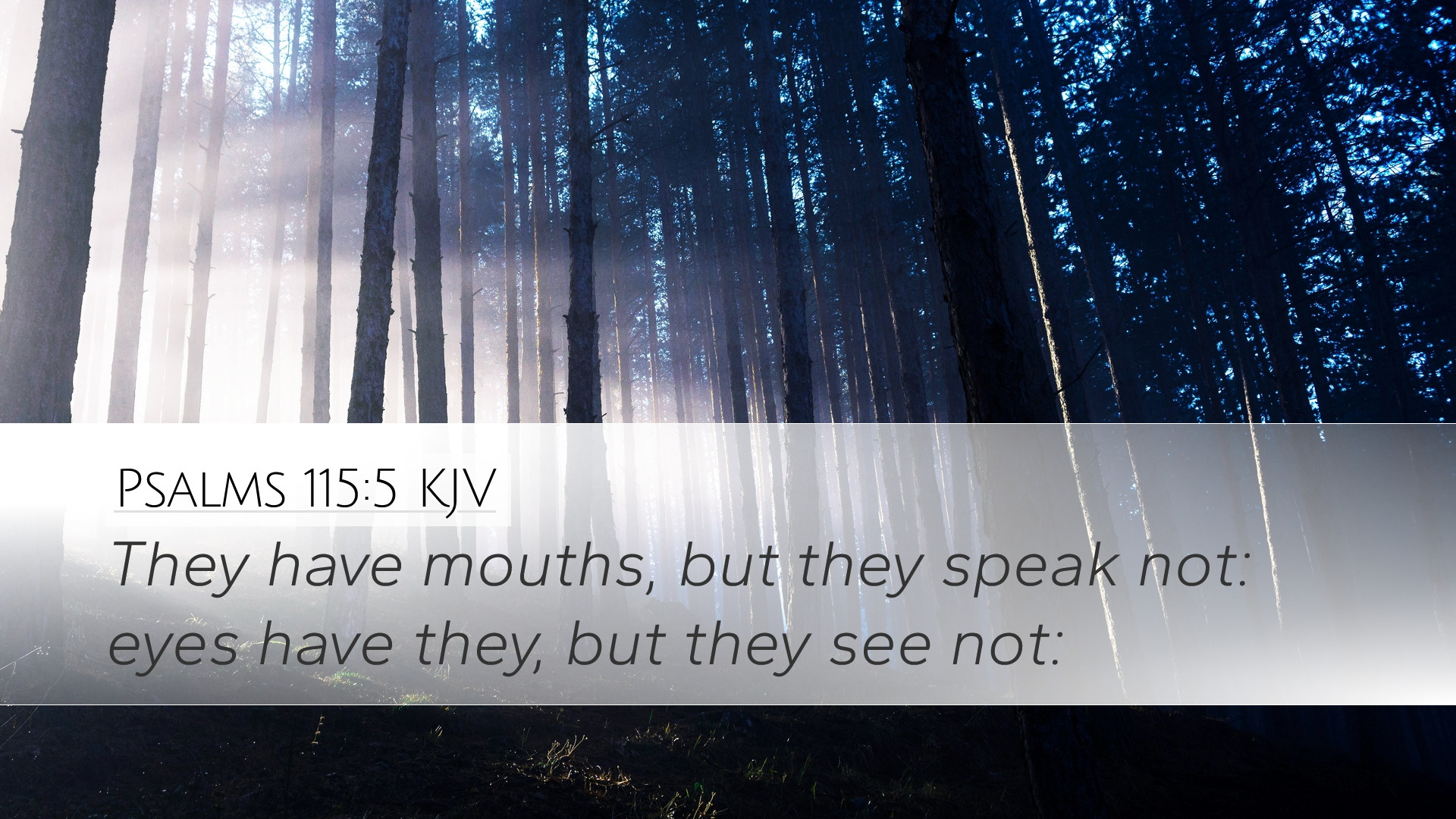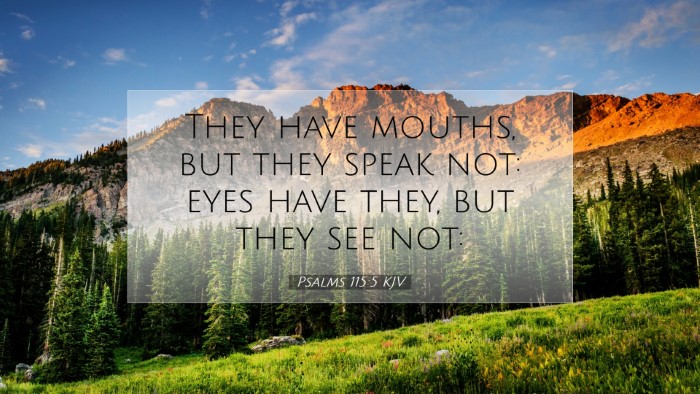Commentary on Psalms 115:5
Psalms 115:5: "They have mouths, but they speak not; eyes have they, but they see not."
This verse is part of a larger context in which the psalmist contrasts the living God with the idols worshipped by the nations. The commentary synthesizes insights from prominent public domain scholars, providing depth suitable for pastors, students, theologians, and Bible scholars.
Contextual Understanding
Psalms 115 belongs to a subset of psalms that focus on God's sovereignty and the folly of idolatry. The psalm reflects the psalmist's response to the idolatrous practices surrounding Israel. Here, the psalmist sharply criticizes idols, illustrating their impotence compared to the living God.
Insights from Commentaries
Matthew Henry
Matthew Henry emphasizes the absurdity of idolatry, noting that the gods of the nations are mere lifeless objects. He points out that the idols are fashioned by human hands and lack any ability to act. Their inability to speak or see signifies not only their impotence but also the spiritual blindness of those who worship them.
Henry further illustrates how the worship of these idols reflects a foolish reliance on what cannot protect or save. He argues that this passage serves as a warning to Israel—and to all believers—not to be drawn into the worship of created things rather than the Creator.
Albert Barnes
Albert Barnes offers a detailed analysis of the imagery within the verse. He explains that tongues, eyes, and other sensory faculties are essential for communication and interaction. The fact that the idols have these features renders them mockable; they appear human-like but utterly lack any of the qualities that define being alive.
- Speechlessness: Barnes notes that the inability to speak indicates a lack of wisdom and understanding. Worshippers are, therefore, engaging in a fruitless exercise.
- Blindness: The inability to see signifies ignorance and a lack of influence in the world. Idols cannot perceive the needs of their followers, reinforcing their role as powerless objects.
- Application: Barnes emphasizes that worshippers place their trust in such relics, showcasing the foolishness of relying on tangible idols instead of the omnipotent God.
Adam Clarke
Adam Clarke expands on the notion of spirituality versus materialism. He explains that the inability of these idols to perform the most basic functions is a clear indictment of their worthlessness. Clarke thoughtfully reflects on how the psalmist's critique aligns with the broader biblical themes of faithfulness to God and the futility of idol worship.
He further asserts that the psalmist's point is not merely to critique the idols themselves but to challenge the behavior of the people who allow themselves to be deceived by these facsimiles of divinity. Clarke argues for a more profound understanding of what it means to worship, insisting that true worship engages both heart and mind in recognizing God's active role in the believer's life.
Theological Implications
The implications of this verse stretch beyond ancient Israel to contemporary times. This passage invites reflection on the modern idols that may not manifest physically but can still claim the devotion of believers. Understanding these "mouths" and "eyes" as symbols of spiritual blindness and mute worship calls the modern church to evaluate what, or who, it truly places its trust in.
Faith and Idolatry
The commentary expands the discussion of faith and idolatry, highlighting that modern believers must guard against placing their faith in material possessions, social status, or even religious institutions at the expense of a personal relationship with God. The psalmist's challenge remains relevant: Are we worshipping the living God, or are we substituting His majesty with something lifeless?
Conclusion
Psalms 115:5 serves as a vibrant reminder of the necessity for believers to critique their surroundings and maintain their allegiance to God. The insights from Matthew Henry, Albert Barnes, and Adam Clarke underscore the profound truth that only the living God can provide hope, while idols are a worthless substitute.
As contemporary followers of Christ, we must endeavor to understand the depth of this passage, allowing it to shape our worship and interactions with the world. In a society filled with distractions and false promises, the reminder to seek the living God cannot be overstated.


